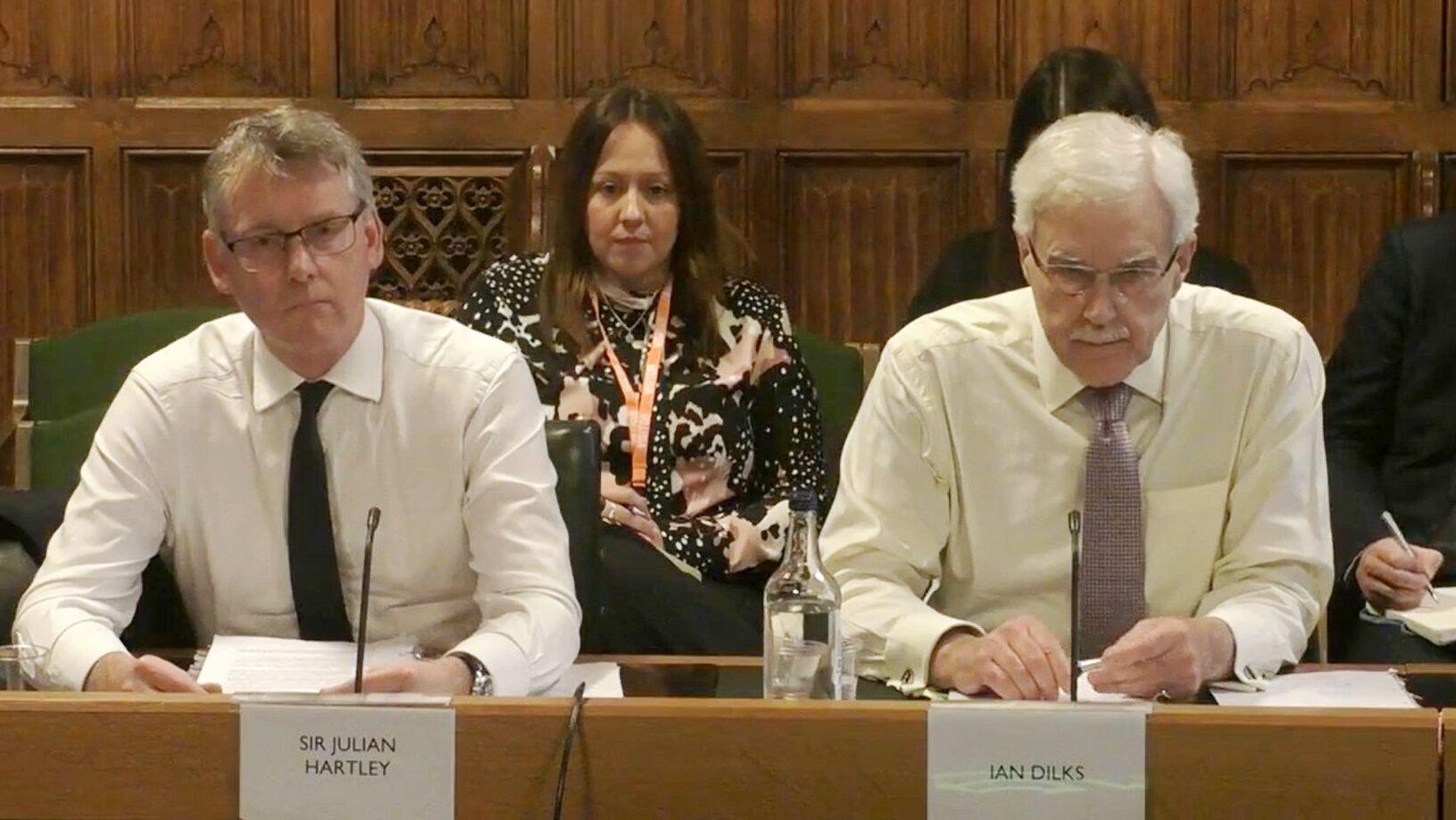Breaking the silence: it’s time to talk about mental health at work
We explore the deep culture changes needed to improve staff mental health and make sure all NHS staff can thrive at work.

After another punishing week and a “frantic” 24-hour period on call at the weekend, Paul, a manager for an NHS trust in the South West, found himself unable to get out of bed. He’d been experiencing stress and feelings of anxiety for months, but knew this was different. “I just couldn’t move. My head felt like lead, I couldn’t even contemplate the things I had to do to get into work,” he recalls.
Paul was signed off sick for a few weeks, and was eventually offered early retirement following a capability review. “My line manager was sympathetic, but couldn’t really offer much else. I was in my late fifties, so it felt like the only option,” he says.
Paul was just one of the estimated 300,000 people who lose their jobs every year in the UK because of mental health problems. According to Thriving at Work, last year’s independent review by Lord Dennis Stevenson and Mind chief executive Paul Farmer, the scale of the mental health challenge in Britain’s workplaces “is greater than we thought”. And the NHS is no exception. The 2017 NHS Staff Survey found that 37% of staff regularly feel stressed at work, a figure that has remained constant despite a plethora of national and local initiatives in recent years.
Behind every job lost is a personal tragedy, but also a considerable financial cost to the NHS. Research for the Stevenson-Farmer report put the cost of mental health problems in the NHS at around £2,100 a year per employee – higher than for any other sector except finance.
Managers “vulnerable”
And it’s not just so-called ‘frontline’ workers who are affected. In manager-heavy NHS England, designated by the government as an ‘early adopter’ of the report’s recommendations (see box), ‘stress, anxiety and depression’ accounts for 35% of all sickness absence – more than three times as much as ‘colds, coughs and flu’. More than 80% of calls to NHS England’s Employee Assistance Programme concern work-related stress, and almost a third involve a mental health condition.
MiP national officer Jo Spear says she is supporting an increasing number of members suffering from mental health problems, particularly senior managers in provider organisations. “There’s something about that tier of management that seems to make them vulnerable to not just stress at work, but actual diagnosable mental health problems,” she explains. “I think it’s because of the proximity to patients and exposure to risks and governance pressures. With commissioners, we tend to get a lot of bullying and harassment, but fewer diagnosable mental health conditions.”
Spear believes most NHS employers simply aren’t “geared up” to deal with mental illness when it affects staff in the workplace. “The policies are too one-dimensional and they have a very anodyne way of dealing with it. Someone is ill, they go off sick and you need to performance manage them back to work. That just doesn’t fit the bill for mental health in the same way it does for physical illnesses.”
Working together
The Stevenson-Farmer review cites long working hours, regular inspections, lack of interaction with colleagues, lack of control over work, and cuts to budgets and staffing as causes of poor mental health among public sector workers.

Faye McGuinness, head of workplace wellbeing at Mind, who is working with NHS England on implementing the review, says: “The onus should be on employers to support their staff through difficult times, so that they can come into work at their best, and in turn get the best outcomes for their patients… which is why implementing the recommendations of Thriving at Work is so important.”
Senior managers in the ambulance service are already working with UNISON and Mind to tackle the very high incidence of mental illness among ambulance staff, which research found could be explained by the way staff were managed – particularly the handling of organisational change. In 2015, helped by a grant from the Cabinet Office, Mind set up the ‘Blue Light’ programme to provide direct support to emergency service workers with mental health problems, while working with employers to tackle the root causes in the workplace.
Alan Lofthouse, UNISON’s national officer for ambulance staff, explains: “These days, your average paramedic is making really big decisions, yet their work life is still quite prescribed, with long shifts, being told where to go, and that constant requirement to keep doing more and keep people out of hospital.”
Add in the high likelihood of being assaulted, the prevalence of bullying, and a poor record on race equality, “and everywhere you looked you had these red flags that something was wrong with the ambulance service,” he says.
“It would be easy for us to criticise management and just say ‘you should be doing something different’,” Lofthouse adds. “But culture-wise, people do what they observe, and historically ambulance services have been managed through grip and command – and through fear a lot of the time… The current managers have developed in that culture, but now we’re asking them to be agents of change and not simply mirror what they did before.”
A healthy workplace?
In England, action at national level has focused on implementing NHS England’s Healthy Workforce framework, which is being updated to incorporate the standards laid down in the report. “We’ve met with… NHS England to discuss the framework and have provided feedback, including the need for them to ensure that they have clear indicators to measure progress against what’s set out in the framework,” says McGuinness.
Despite endorsing the Stevenson-Farmer report as an employer, the government stopped short of making the new standards compulsory for all NHS organisations – trusts and CCGs will merely be “encouraged” to meet them. “Making implementation mandatory might not be the right approach,” says McGuinness. “We’d hope that the financial argument for putting in place wellbeing initiatives is sufficiently strong that organisations get on board without any coercion.”
She cites research by Deloitte which found that workplace interventions – such as Employee Assistance Programmes, which offer 24-hour confidential support, and Mental Health First Aider schemes – show a return of between £1.50 and £9 for every pound invested. “Even those with small budgets appreciate there are lots of small, free initiatives that make a difference – such as buddy systems, regular catch-ups with managers, flexible working hours, and options to work in different places,” she says.
Stevenson-Farmer: key recommendations for the NHS
- Chief executives of NHS organisations to have performance objectives relating to employee mental health
- Regulatory bodies (e.g. CQC) to include the employer’s approach to staff mental health in their assessments
- Routine monitoring of employee mental health
- Enhanced mental health training for staff at all grades, especially for line managers
- Employers to identify staff at higher risk of stress or trauma and develop a national framework of support
- Tailored in-house mental health support for larger organisations, with signposting to clinical support
- Measures to encourage open conversations about mental health and the support available to staff
The finger of capability
One of the persistent themes in the Stevenson-Farmer report is the need for employers to abandon the traditional ‘performance management’ approach, where mental health problems – if discussed at all – are tackled as issues of individual capability.
“You’ve got people working very long hours under extreme financial constraints and they’re expected to behave as if the job is a vocation,” says Spear. “And then when they look like they’re going under, the finger of capability is pointed rather than support.”
Spear is particularly critical of the use of ‘Bradford scores’, where formal procedures are automatically triggered after a number of incidents of sickness (typically three) within a year. “If you have a mental illness, rather than something people can see like a back injury, the assumption is that you’re just not coping and they start performance managing you, giving you performance standards to meet.
“What they should be doing is giving basic consideration to whether you’re not coping because you have a workload which no normal person could cope with, and you need to talk to someone other than your line manager,” she adds.
Paul agrees that sickness absence procedures often make things worse, hiding the real problems and piling more pressure on already over-worked staff. “They make it all about you, not about the job, or looking at what made you ill in the first place. And that just makes you feel less capable and less supported – sort of hopeless. I can’t see how that’s supposed to help anyone.”
Leadership responsibilities
Lofthouse expresses sympathy with line managers who are often under pressure to reduce sickness absence and meet response time targets. “Our message is that if they treat staff well and look after them, that will have an impact on those things – but do they really understand that, and does the organisation at board level say that as a clear message?” he adds.
This need for leaders to take responsibility is behind one of the Stevenson-Farmer report’s most striking recommendations: that NHS chief executives should have staff mental wellbeing enshrined in their performance objectives.
“It’s important that… NHS chief executives lead by example, and consider how they can be held accountable for the wellbeing of their staff,” says McGuinness. “Having performance objectives relating to employee mental health is one way they can do this… Showing staff that employee mental health is a key priority, and one that they are willing to be measured against, is a step towards creating a positive culture where staff feel able to talk about their mental health problems.”
This would certainly be an unprecedented step, with big potential to drive meaningful change. But how it will be implemented across the NHS remains to be seen. “We don’t yet have any examples of this being done before,” McGuinness admits.
Culture of silence
Claire, a service lead for a community health trust in the South East, recently returned to work after several months off with a mental health condition. She says the biggest problem in the NHS is that people simply feel unable to talk about problems at work that might lead to mental health conditions.
“Everyone pretends they’re at this level of ‘just about coping’,” she says. “No one talks about being not able to cope until it’s too late. There’s a sort of tipping point. The support you get when you’ve been diagnosed with [a mental health condition] should be there long before things get to that point.”
The Stevenson-Farmer report takes particular aim at this ‘culture of silence’, where employees keep quiet about mental illness for fear of being stigmatised, demoted or even losing their jobs. Instead, says McGuinness, employers need “to create a culture where staff feel able to talk openly about stress and mental health, and know that if they do, they’ll be be met with support and understanding rather than stigma and discrimination.”
Claire cites supportive colleagues, a sympathetic line manager and a recently-established staff support network as factors which enabled her to resume her career, more or less where she left off.
“I was lucky,” she explains. “I work in mental health, so I had a good understanding of my own condition and could navigate the system. Having a supportive manager is really important – someone who’s prepared to stick her neck out and challenge [the employer] if needs be. But most people don’t have that.”
She warns the persistent stigma over mental illness still prevents most people from getting help. “The staff network helped me a lot, but it’s mostly the same people – therapists and a few managers – talking to each other. Most people don’t come because they think everyone will know they’ve got problems, and they don’t want their manager finding out.
“We want people to know that it’s okay to talk about this, whether they’ve already got an illness or not. When that happens, we might be getting somewhere.”
The names of some participants have been changed at their request to protect their identity.
Related News
-

Regulating the managers: more questions than answers
The Labour government’s plans for regulating NHS managers are still shrouded in mystery, and the three options on the table each have their pros and cons. Rhys McKenzie weighs up the choices and gauges the views of MiP members on the best way forward.
-

The inspector falls: why the CQC needs a fresh start
After years of chaos, the Care Quality Commission urgently needs to rebuild trust and credibility with the public and the services it regulates. What needs to change and what are the priorities for new boss Sir Julian Hartley? Alison Moore reports.
-

Voice, value and vision: what analysts need from the NHS
Data analysts play a vital role in an NHS which is increasingly data-driven and focused on public health trends. But the NHS faces fierce competition for skilled analysts and many feel the health service fails to value them or fully use their talents. Alison Moore reports.